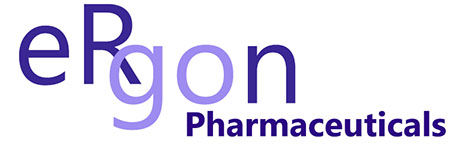预约演示
更新于:2025-05-07

Ergon Pharmaceuticals LLC
更新于:2025-05-07
概览
标签
肿瘤
消化系统疾病
小分子化药
关联
3
项与 Ergon Pharmaceuticals LLC 相关的药物靶点 |
作用机制 IRG1抑制剂 |
非在研适应症- |
最高研发阶段临床前 |
首次获批国家/地区- |
首次获批日期- |
靶点 |
作用机制 IRG1抑制剂 |
非在研适应症- |
最高研发阶段临床前 |
首次获批国家/地区- |
首次获批日期- |
靶点 |
作用机制 BCAT1抑制剂 |
在研机构- |
在研适应症- |
非在研适应症 |
最高研发阶段无进展 |
首次获批国家/地区- |
首次获批日期- |
100 项与 Ergon Pharmaceuticals LLC 相关的临床结果
登录后查看更多信息
0 项与 Ergon Pharmaceuticals LLC 相关的专利(医药)
登录后查看更多信息
16
项与 Ergon Pharmaceuticals LLC 相关的文献(医药)2025-04-21·Cancer Research
Abstract 4251: Drugging of ACOD1 is associated with tumor regression in syngeneic tumor models
作者: Zhong, Yajie ; Li, Weixing ; Chak-Lui Wong, Carmen ; Papathanassiu, Adonia E.
2022-06-15·Cancer Research
Abstract 4236: Temporal inhibition of BCAT1 alters metal homeostasis leading to reversal of terminal exhaustion of CD8 T cells, increased cytotoxicity, and increased efficacy of checkpoint inhibition in cancer
作者: Vu, Hong A. ; Li, Weixing ; Papathanassiu, Adonia E.
2021-07-01·Cancer Research
Abstract 1202: ERG344: A novel IRG1 inhibitor for the treatment of colon cancer
作者: Lambrechts, Diether ; Vu, Hong A. ; Lodi, Francesca ; Papathanassiu, Adonia E.
100 项与 Ergon Pharmaceuticals LLC 相关的药物交易
登录后查看更多信息
100 项与 Ergon Pharmaceuticals LLC 相关的转化医学
登录后查看更多信息
组织架构
使用我们的机构树数据加速您的研究。
登录
或

管线布局
2026年02月28日管线快照
管线布局中药物为当前组织机构及其子机构作为药物机构进行统计,早期临床1期并入临床1期,临床1/2期并入临床2期,临床2/3期并入临床3期
临床前
2
1
其他
登录后查看更多信息
药物交易
使用我们的药物交易数据加速您的研究。
登录
或

转化医学
使用我们的转化医学数据加速您的研究。
登录
或

营收
使用 Synapse 探索超过 36 万个组织的财务状况。
登录
或

科研基金(NIH)
访问超过 200 万项资助和基金信息,以提升您的研究之旅。
登录
或

投资
深入了解从初创企业到成熟企业的最新公司投资动态。
登录
或

融资
发掘融资趋势以验证和推进您的投资机会。
登录
或

生物医药百科问答
全新生物医药AI Agent 覆盖科研全链路,让突破性发现快人一步
立即开始免费试用!
智慧芽新药情报库是智慧芽专为生命科学人士构建的基于AI的创新药情报平台,助您全方位提升您的研发与决策效率。
立即开始数据试用!
智慧芽新药库数据也通过智慧芽数据服务平台,以API或者数据包形式对外开放,助您更加充分利用智慧芽新药情报信息。
生物序列数据库
生物药研发创新
免费使用
化学结构数据库
小分子化药研发创新
免费使用